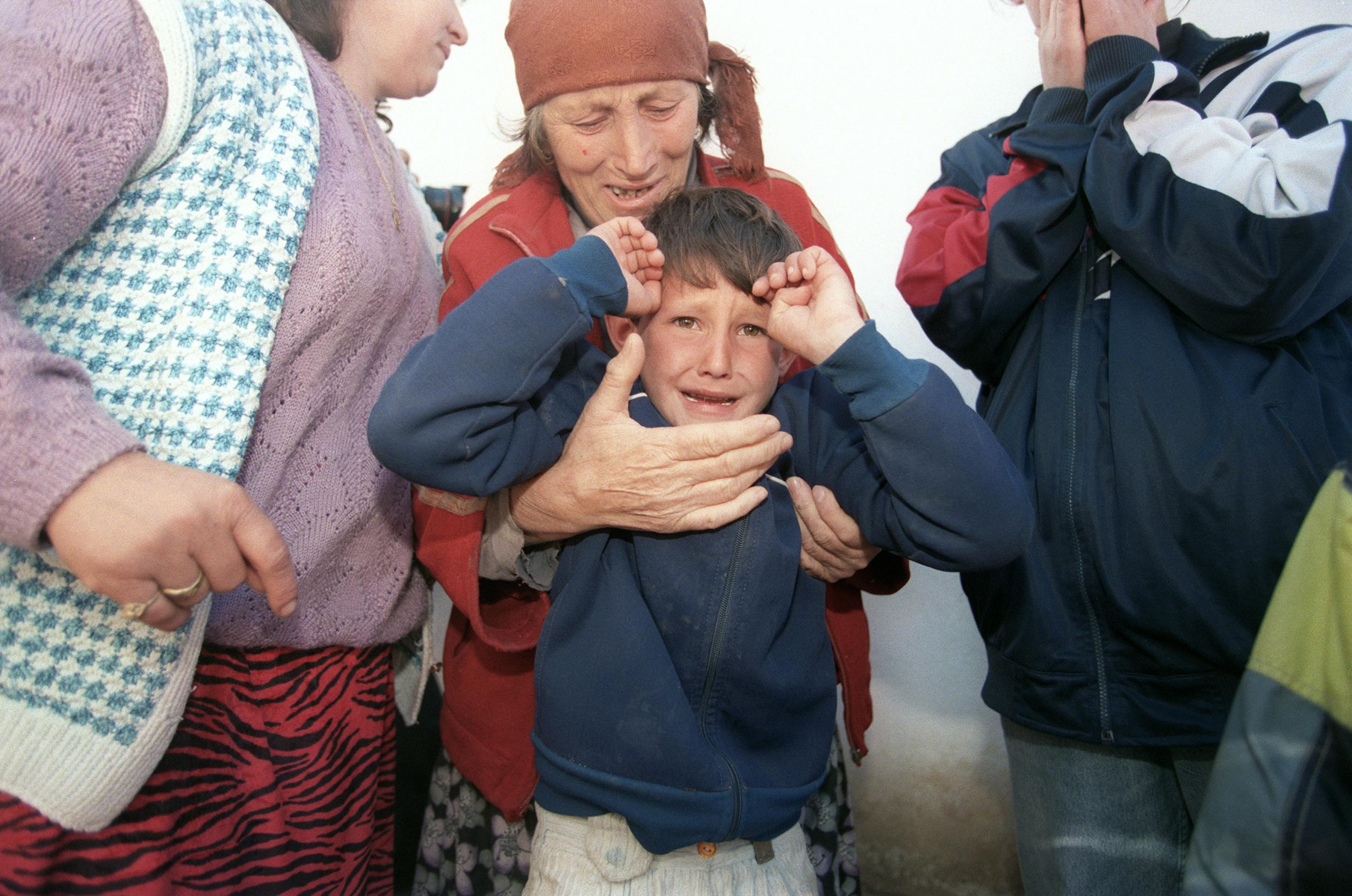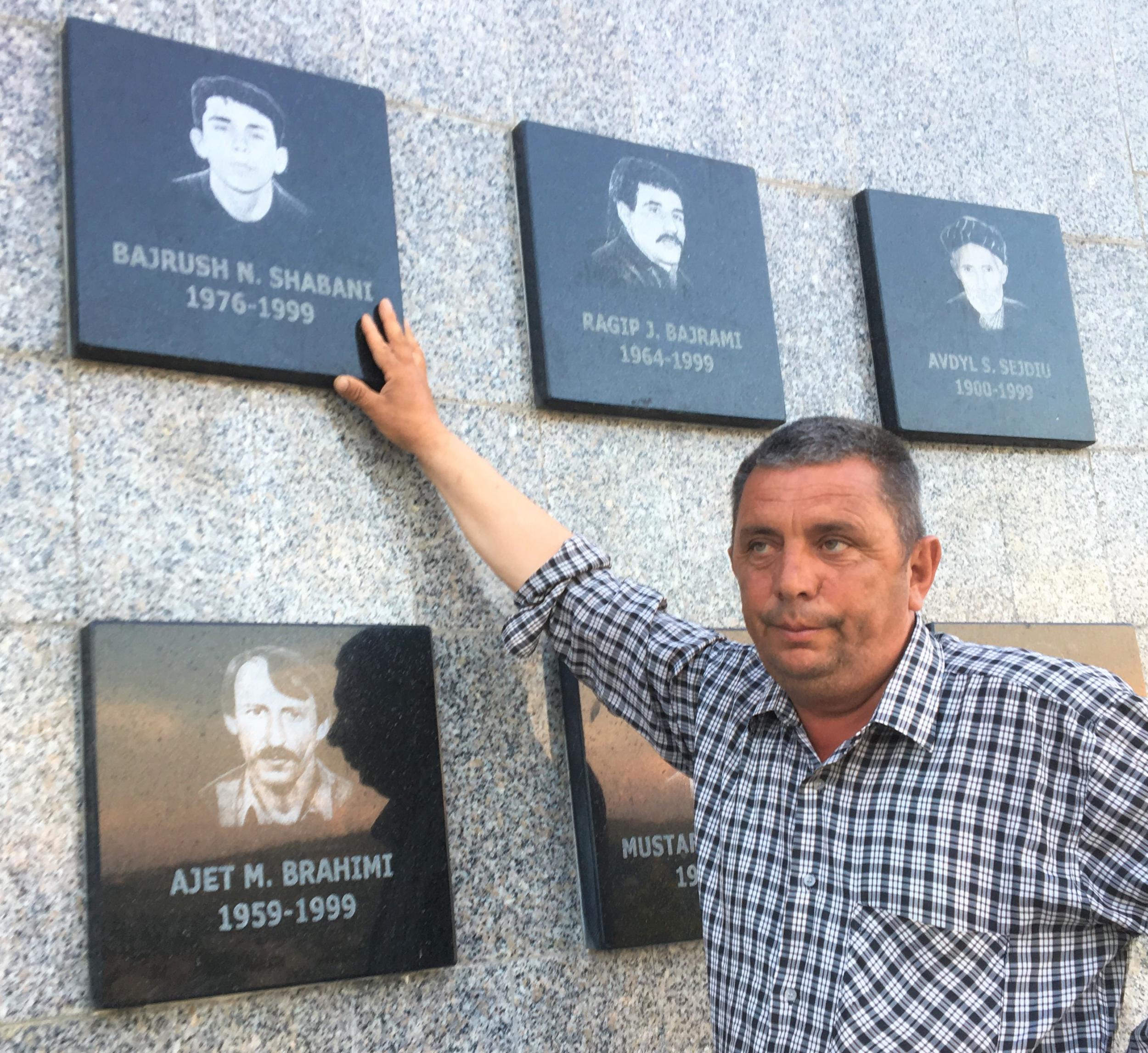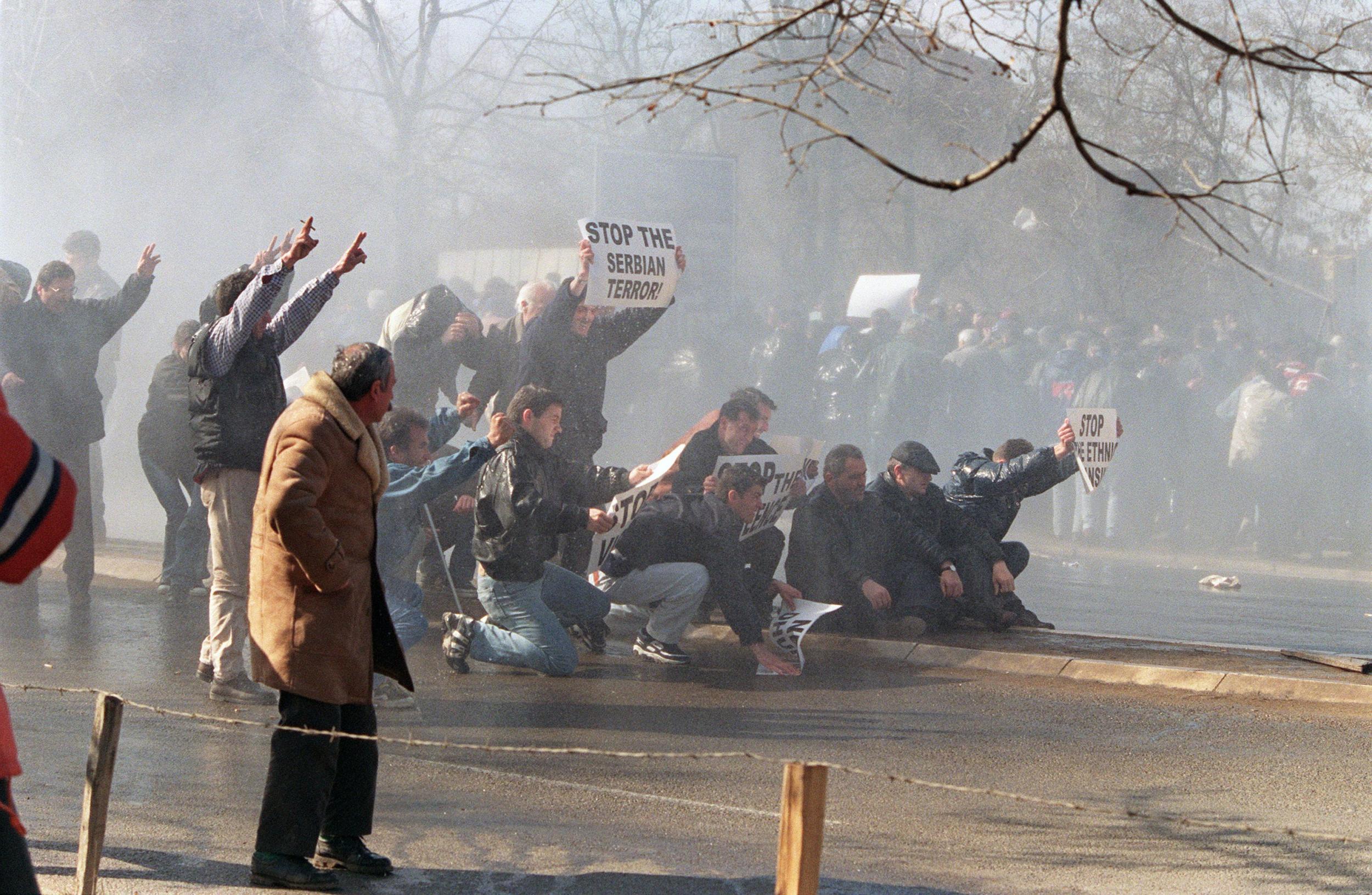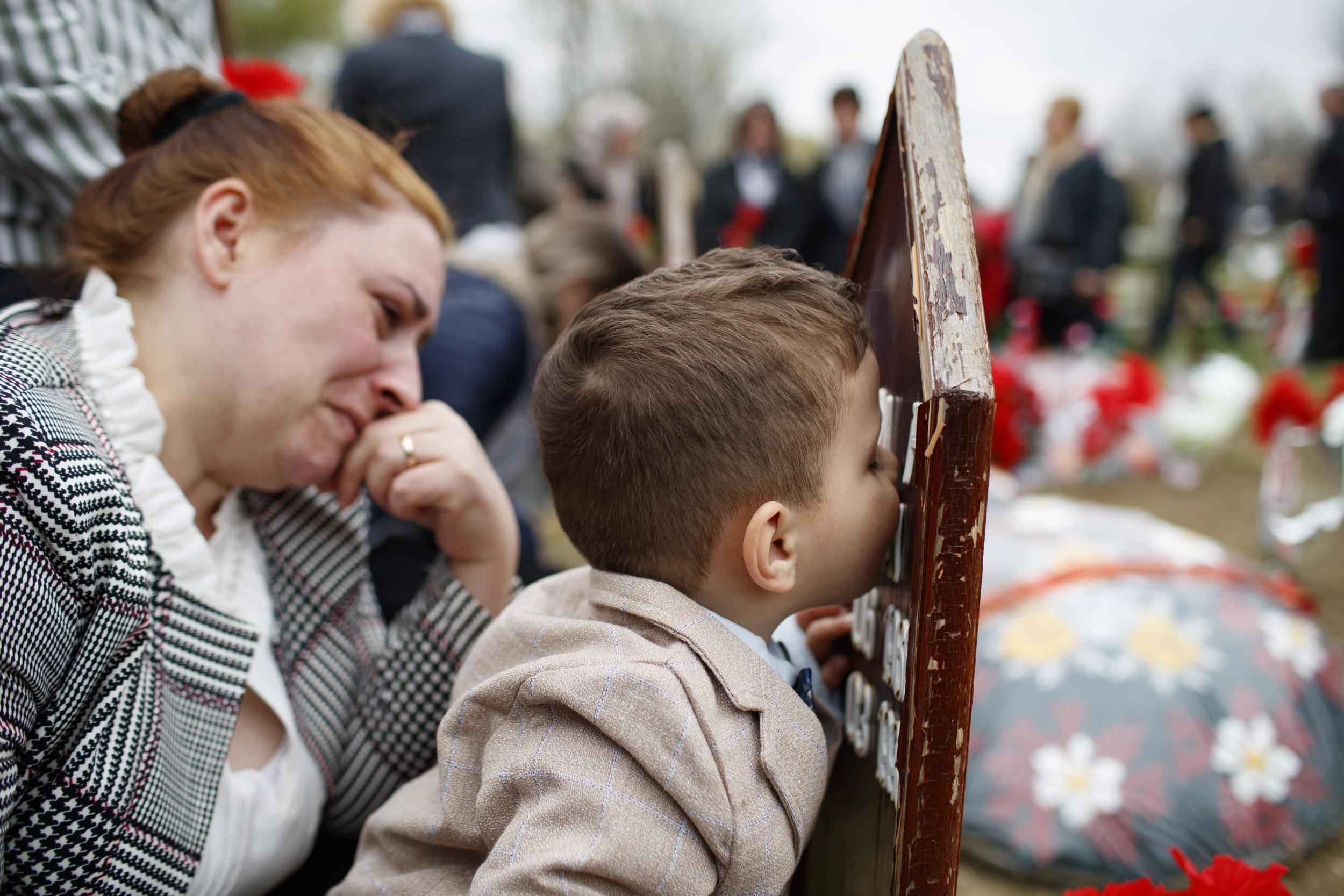Twenty years after the end of the Kosovo war, survivors of Racak massacre remember their loved ones
The anniversary of a war that saw 15,000 killed and around 2.7 million displaced is marked by pomp and ceremony with international statesmen likely to attend, writes Kim Sengupta


Your support helps us to tell the story
From reproductive rights to climate change to Big Tech, The Independent is on the ground when the story is developing. Whether it's investigating the financials of Elon Musk's pro-Trump PAC or producing our latest documentary, 'The A Word', which shines a light on the American women fighting for reproductive rights, we know how important it is to parse out the facts from the messaging.
At such a critical moment in US history, we need reporters on the ground. Your donation allows us to keep sending journalists to speak to both sides of the story.
The Independent is trusted by Americans across the entire political spectrum. And unlike many other quality news outlets, we choose not to lock Americans out of our reporting and analysis with paywalls. We believe quality journalism should be available to everyone, paid for by those who can afford it.
Your support makes all the difference.The shooting began just before five in the afternoon. Ram Shabani remembers the time when his life changed forever. He recalls hearing the muzzein’s call from the mosque drifting over the loudspeaker just when he felt he was going to pass out from fatigue and the prolonged beating he had received.
“We were with our hands on our heads for a very long time. I was in real pain and did not think I would last any longer.
“Then I heard the prayer – it was such a peaceful sound, but suddenly there was firing all around me, people were screaming and falling, dying around me,” he recalls.
The massacre at Racak on 15 January 1999 by Serbian forces was one of the catalysts for the Nato military action in Kosovo. Months of violence and death had already passed in the conflict between the Serbian government and Kosovan Albanian rebels, with mounting diplomatic tensions and risky international realpolitik.
The bombing campaign by the west was followed by a ground invasion and the last major war in the bloody dismemberment of Yugoslavia whose bitter legacy continues to this day.
The 20th anniversary of the end of the war, in which 15,000 people died and around 2.7 million were displaced, is being marked by pomp and ceremony this week in Kosovo with the leaders of the west at the time, including Bill Clinton and Tony Blair, supposedly due to attend.
What will be an occasion celebrating the birth of a nation in Kosovo will provoke anger among many in Serbia. Politicians and members of the public rail against what they believe to be yet another chapter of western aggression, which has seen the detachment and creation of Croatia, Slovenia and Bosnia Herzegovina, while Kosovo, the land they considered to be the cradle of the Serbian heritage, was taken away.
Mr Shabani has his own personal reasons for deep anger and grief. No one has ever been brought to justice for the murders of 11 members of his extended family that day, their lives taken among the 45 from Racak that day, most of them marched off from their home to a wooded mountainside and executed.
His 21-year-old brother Bayrush was among the victims. Other family members slaughtered included four-year-old Hassan Beqa and Avdyl Sejdiy, 99.
“Every one of these were relations, none of them were allowed to live,” he says, sweeping his arm along the faces of the fallen on a memorial black stone on the Racak hillside. “This is a small place, so of course we were all very close, of course we miss them all very much.”

Mr Shabani, a 33-year-old farmworker at the time of the attack, still feels surprised that he is alive.
“I started shouting at people to start running when they began using the guns. I didn’t think I would make it because I had been hit so many times and everything was aching. At the end I couldn’t do anything but jump into a ditch full of the others who had been shot”, he recalls.

He lay there until late into the evening pretending to be dead. “There was blood, there were people who were injured, they were moaning, some of them died. At the end, I got out and made my way back to the village. It was very silent then I remember, I was in shock, not sure what was going to happen next,” he recounts.
Mr Shabani saw the remains the next day when a team from the Kosovo Verification Mission (VCM), led by former US diplomat William Walker, got access to the site. After seeing the dead and the extent of injuries, Mr Walker described what happened as a “terrible atrocity, a crime against humanity, I don’t hesitate to blame the government (Serb) security forces – I will insist that justice is done”.
“He was very shocked by what he saw, everyone was. Some heads had been blown off, they had been using machine guns and other things so close,” Mr Shabani says. “But it wasn’t until the next evening, when they brought the bodies to the mosque, that I realised that Bayrush and the others had been killed.
“No one had ever paid for these murders, no one is in jail. When this anniversary takes place, we’ll thank Nato, the US and Britain for what they did for us. But this village and other places where there were killings have not received justice despite what we were promised.”
There were a number of international investigations into the deaths at Racak. The UN Security Council blamed Serbian security forces for the killings. The attack formed part of the indictment against Slobodan Milosevic and a number of other senior Serbian leaders at the International Criminal Court (ICC) in The Hague.
The Serbian government has repeatedly denied that its forces massacred civilians at Racak. Those who died, they had claimed, were rebel fighters, members of the Kosovo Liberation Army killed in a firefight, and evidence showing this had been removed.
In June 2001, a court in the Kosovar capital of Pristina sentenced 32-year-old former police officer Zoran Stojanovic to 15 years of imprisonment for murder and attempted murder at Racak. The sentence was decided by two UN judges and one Kosovar Albanian judge – but there was disquiet about the verdict from the UN itself and human rights organisations such as Amnesty International.
Mr Stojanovic, who was Serbian and had a Kosovar Albanian wife, was pardoned in 2007 due to the conviction being based on unsatisfactory evidence. He was released two years later. No one else has been charged over the murders; the Racak massacre remains an unsolved case.
There had been also been a number of accusations of killings of Serbs by Kosovar Albanians, gruesome (unproven) charges of trade in body parts of Serbian prisoners by KLA fighters, and desecration of churches and monasteries. A number of KLA officials had faced trials: the current prime minister, Ramush Haradinaj, was tried, and acquitted, of war crimes in The Hague.

Legal action continues. The Kosovo Specialist Chambers and Specialist Prosecutor’s Office, set up in 2017, is investigating allegations of war crimes against a number of former senior figures in the KLA, including Hashim Thaci, the Kosovar president.
Mr Thaci insisted recently in an interview with The Independent: “As always, we will not run away, we will not shy away, we will face it and I am convinced we will overcome it with dignity and integrity. I am very proud that I was one of the leaders of the Kosovo Liberation Army. There will always be voices that try to denigrate Kosovo or accuse Kosovo, smear Kosovo and me personally.”
Kosovo’s declaration of independence led to recognition from around 100 states including the UK, US and most of their western allies, although not from Greece, Spain, Romania and Cyprus.
Tensions have flared recently between Serbia and Kosovo – a few months ago, Belgrade raised the prospect of armed intervention after Kosovo declared it is forming its own army. Despite this, there have been no significant clashes with a Nato force in Serbia. There have, however, been acts of extreme violence, including assassinations.
Agreements made under the auspices of the EU and the UN mean Serb majority areas have a degree of autonomy. And some of the Serbs who fled Kosovo after Belgrade’s forces withdrew have now returned.
Dejan Subotic left Kosovo just after the war for neighbouring Macedonia. “I didn’t go to Serbia at the time because, frankly, I did not like what Milosevic and some of his people were doing, I have never liked them,” he says.
“But it became impossible to stay in Kosovo. The Albanians were attacking Serbs, there were killings, houses being taken over. So I left with my family. I had worked for a building supply business working everywhere, Pristina, Gracanica, Mitrovica, we were doing well. I had lots of Albanian friends, but we had to leave everything behind.”
Mr Subotic, who now spends his time between Macedonia and Kosovo, assures me over a coffee in Pristina that “things are certainly a lot better now”. He adds: “No side is without guilt and now that Serbia and Kosovo both want to join the EU, this would be a good basis. And maybe the time has come to leave the fights of the past and move on, but that is not going to be easy in this part of the world.”
The 56-year-old businessmen visits relations in Gracanica and villages near Mitrovica, both towns with historic Serbian majority. But he is worried about what had taken place in Mitrovica. In January last year, Kosovar Serb politician Oliver Ivanovic was shot dead outside the offices of his party.
Mr Ivanovic was facing a retrial for allegedly ordering the killing of Kosovar Albanians during the war, charges to which he had pleaded not guilty.
But the man who was once a hardline Serbian nationalist had been increasingly viewed as following a moderate course advocating cooperation and coexistence between the two communities. And he had also been increasingly vocal about some politicians in Belgrade. Four people have been arrested and prosecutors have named Milan Radoicic, a leader of the Belgrade-backed Kosovo Serb party, Srpska Lista, as a suspect.
There are claims in Pristina by some officials that Mr Ivanovic’s killing was meant to be one of several attacks by shadowy Serbian nationalists with the aim of creating tensions and provoking sectarian clashes.
Mr Radoicic, who is living in Serbia, has denied any involvement in the murder. Nebojsa Stefanovic, the Serbian interior minister, maintains that his country’s own investigation into the case identified “certain individuals” who were in Kosovo but had subsequently fled to a country in “western Europe”.
The brutal strife of Kosovo’s war is increasingly in the past. But accusations, recriminations and violent feuds continue. “People never forget history here unfortunately, there are always grudges.” Mr Subotic says. “After all, this is the Balkans.”
Join our commenting forum
Join thought-provoking conversations, follow other Independent readers and see their replies
Comments